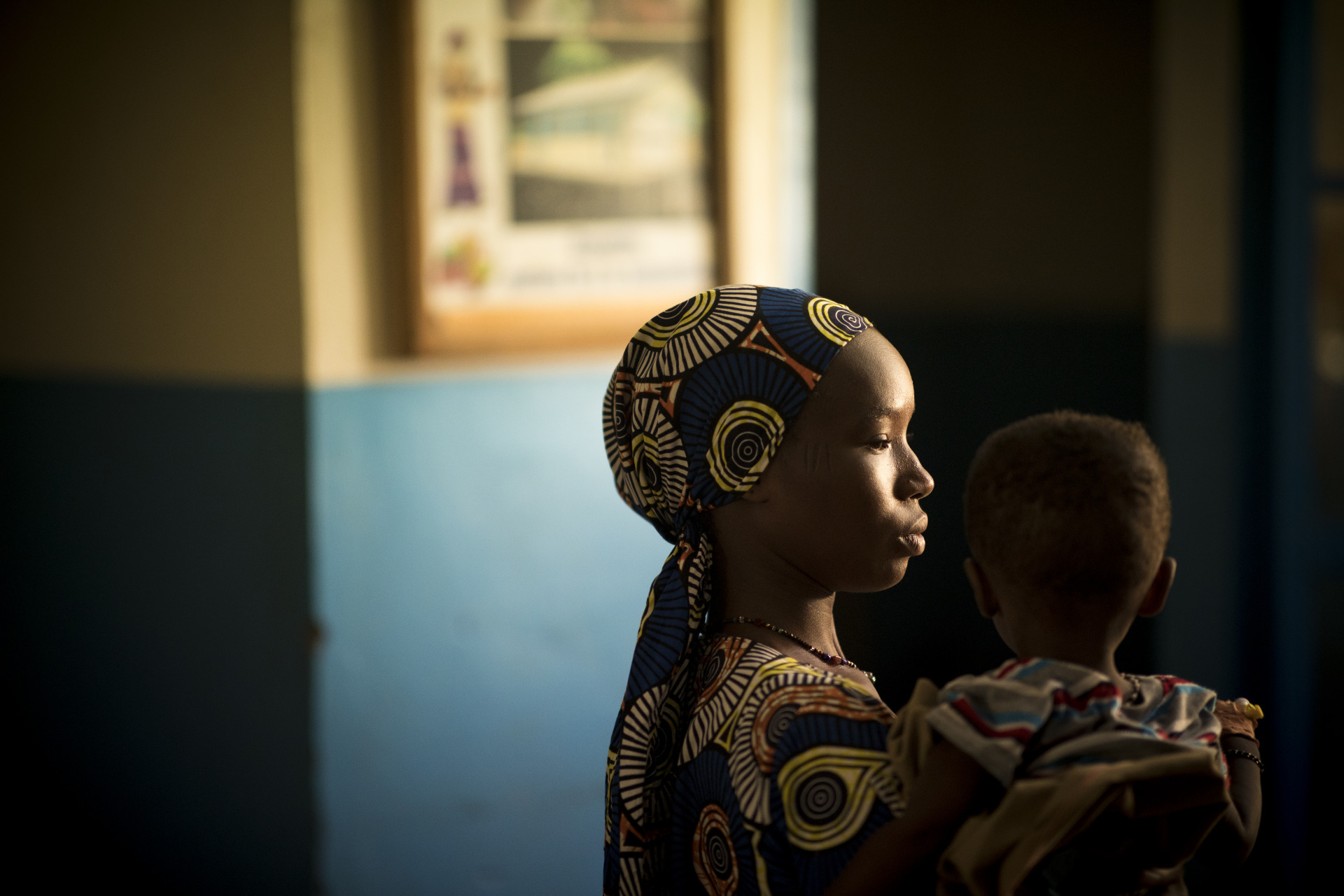
GIVE THIS RAMADAN

1 in 8 people in the region could face a severe food insecurity crisis in the coming months
In light of today’s High-Level Meeting of the European Commission on the humanitarian crisis in the Central Sahel, Action Against Hunger is sounding the alarm about increasingly high levels of severe food insecurity in the region. In Burkina Faso, Mali, and Niger, hunger could increase by 50% in the coming months, growing from 5.5 million to more than 8 million people facing a severe food insecurity crisis.
“For three consecutive years, we have been seeing dramatic levels of food insecurity in the Sahel: more than 27 million people each year suffer from severe hunger. If we stop helping the people of this region, 16 million more people could be driven into the same food crisis,” warns Manuel Sánchez Montero, Director of Advocacy and Institutional Relations for Action Against Hunger in Spain.
“We are in a very difficult moment where the consequences of three major crises – conflict, the climate crisis, and COVID-19 – have combined and fed off of each other to exacerbate this hunger crisis,” says Kambire Sanzan, Country Director for Action Against Hunger in Mali. “We must break this vicious cycle between these crises and hunger.”
In central Sahel, political and social instability in Mali and Burkina Faso, combined with increasingly prolonged and severe droughts and floods, are causing massive population displacements. In Burkina Faso, Mali, and Niger alone, there are more than 3.2 million internally displaced people.
In addition to suffering from violence and depleted resources, the COVID-19 pandemic and its secondary impacts have restricted movement and economic opportunities.
Sanctions Exacerbating Needs in the Region
Right now, we must increase – not limit – humanitarian aid in a region on the verge of collapse.
In Mali, the latest sanctions announced by the Economic Community of West African States (ECOWAS) and supported by the European Union include border closures, a trade embargo, withdrawal of financial aid, and freezing of the country’s assets in the Central Bank of the States of West Africa. These measures limit institutions, but also hamper the country’s entire civilian population that is already very weak. The sanctions are contributing to the country’s worst food insecurity crisis in a decade.
These restrictions are impeding basic social services and the health system, which depend on foreign assistance for 60% of their operations.
Action Against Hunger in the Sahel Crisis
Action Against Hunger is working to prevent and mitigate food insecurity throughout the Sahel region. We support activities to prevent, detect, and treat malnutrition through community networks that monitor nutrition among the most vulnerable people. We also distribute food and nutrition supplements to families at risk, young children, and pregnant women.
To support displaced communities, we provide medicines, shelter, and other items, operate mobile clinics, truck in clean water, and repair and sanitize water sources.
Our teams are also working to strengthen the capacity of health structures to better manage the COVID-19 pandemic through the training of health professionals, community leaders, and civil society organizations. To mitigate the impact of the pandemic on the living conditions of communities, we distribute kits for COVID-19 prevention and food assistance.
Join our community of supporters passionate about ending world hunger.